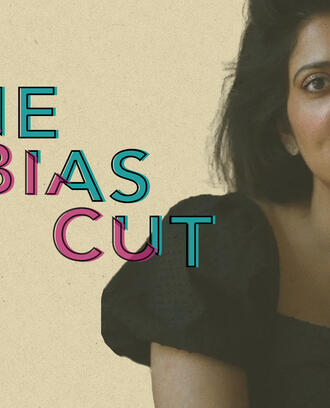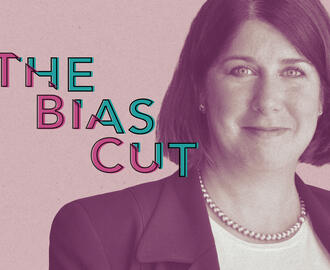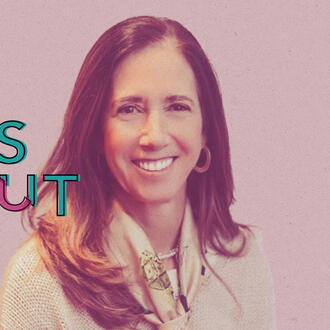Why this tech consultant and executive coach embraces being a B student
By
A 2023 women’s leadership study from LeanIn.org and McKinsey & Co. found that American women held 40% of corporate management positions, and women continue to fight underrepresentation when it comes to board positions and CEO roles. They also face gender bias, harassment, and opposition to their management styles.
Here’s how one MIT Sloan alumna pushes back on those statistics and uses what she’s learned along the way to help those behind her.
Joanna Brownstein, MBA ’08, founder of and principal at Brownstein Consulting LLC, and founder of and executive coach at Succeed Studio.
Given what you know now, what would you tell your younger self about being a woman in your industry?
I would tell myself not to be constrained by other people’s limiting thoughts. Early in life, I was influenced by family members’ risk aversion and scarcity mindset. Similar to a lot of people of their era, my grandparents lived through the Great Depression, and their relationship with money and finances was influenced by that. They lived very frugally and didn’t take financial risks. That mindset was passed down to my parents and ultimately to my sisters and me. There’s definitely a benefit, in that they provided a foundation of financial literacy and responsibility, but on some level [they] limited our imaginations about what we could achieve. There was a fear of taking too big a risk due to the fear of ending up with nothing.
Then, in my 20s, I was impacted by the limiting thoughts of a person I was in a relationship with. I was offered an amazing job as head of staff to a global head at a large pharma company. My boyfriend at the time asked, “Do you really think you can do that job?” Rather than saying yes and taking the job, I let that comment feed into my insecurities. I turned down the job and ended up reporting to the person who took the job when I joined the company the following year.
My time at MIT helped transform my thinking to an abundance mindset, and my willingness to take calculated risks increased.

Women's Leadership Program
In person at MIT Sloan
Register Now
Can you give an example of a time you’ve experienced or witnessed gender bias? How did it affect you professionally? What impact did it have on your job?
Early in my career, I noticed that when I made a suggestion in a meeting, it would often be ignored. A male coworker would make the same suggestion a minute or two later, and it would be well received. It got to the point where he and I would pregame before meetings. If there was something that I really needed to get across, I would say it and he would be sure to amplify it. It was very frustrating, but I learned how to get my voice heard one way or another.
What is the most difficult lesson you’ve learned in your professional life? In what unexpected ways did you grow from it?
The most difficult lesson I’ve learned is that as a woman, I often have to fight to get the same thing that a man is just given. Years ago, I was talking to a male colleague who was getting promoted into a role that was the same level I had been at for several years. In fact, he was someone I’d mentored over the years and encouraged to take on more leadership responsibilities. I asked him if he had negotiated his salary and he said, “No, I didn’t have to. I was happy with what they offered.” He shared the salary that he was offered and it was the same as what I was making. I had been in the more senior position for several years and had fought to get to the salary level I was at. I was happy for him but very disappointed that the organization I was at — which prided itself on equity — wasn’t really equitable after all.
I think experiences like this make you more resilient and reinforce the need that as a woman, you need to do your homework and advocate for yourself when negotiating for a new role.
What’s one specific way you tend to your well-being, and how do you encourage well-being among your staff?
I try to get to the gym several times a week and eat foods that are healthy for me. I manage a chronic digestive disorder, and if I don’t eat the right foods, I feel the pain.
I’ve also grown to appreciate that flexibility in the workplace is essential for allowing all people to attend to their well-being. If people feel free to flex their schedule to go to the doctor or bring a family member to the doctor, they will be healthier and more productive. When I’ve led teams in the past, I’ve always told them that family and health are the most important things. The work still needs to get done, but it doesn’t always need to involve face time or being on the same schedule as everyone else. As an entrepreneur working on scaling my coaching and consulting businesses, I don't currently have a team to manage, but I try to reinforce this flexibility with colleagues and collaborators.
What’s one skill or behavior women can adopt to make their career path more successful and more manageable?
This may sound a bit counterintuitive, but I think women need to embrace being a B student at some things. We’re socialized from the time we’re children to be excellent at everything all the time — and it’s exhausting! I advise the people I coach to figure out where they need to be an A student and focus on those things; the rest can be deprioritized. They push back a lot at first and then are shocked at the results. In addition to being happier themselves, they report getting better feedback from their teams because they’re empowering them and delegating more. Delegating also frees up time to focus on the important tasks that will get them promoted, so the benefits create a virtuous cycle.
If you could snap your fingers and change one thing about workplaces, societal norms, or public policies that would most benefit women in the workforce, what would it be?
Meaningful accommodations for family caretaking, whether it be for children, elderly parents, or a sick partner. The Family and Medical Leave Act exists, but it can be difficult to navigate. For the six months my father was in hospice, I was in a very demanding role and didn’t have time to chase down all of the signatures I needed to get FMLA-approved. My father’s doctors were difficult to reach, and I struggled to get answers from my company’s HR group. I juggled caretaking for him with long days at work. Some days balls dropped, and I was nearing burnout. We need to make it easier for people to access supportive family caretaking programs and make it feel OK from a cultural perspective to use them.




